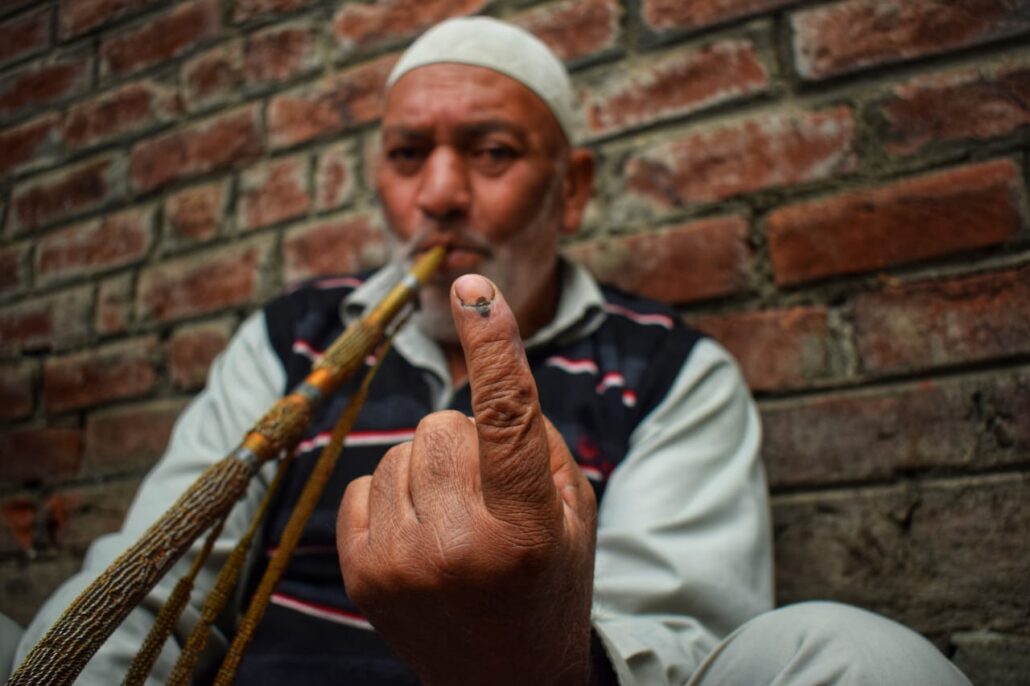
The BJP’s attempt to consolidate power in Jammu Kashmir has met fierce resistance in the 2024 assembly elections, as voters overwhelmingly rallied behind candidates opposing the central government’s hardline approach since the 2019 abrogation of Article 370, Zahir and Zamir Abdullah, the sons of Omar Abdullah have said.
In their opinion piece, written for the Indian Express, the grand-children of Sheikh Mohammed Abdullah have argued that with key figures detained and harsh laws enforced, the people’s choice reflects a powerful message: a demand for justice, democratic freedoms, and the end of what many view as repressive measures aimed at silencing dissent in the region.
The article written by the siblings, Zamir and Zahir Abdullah dives deeply into the BJP’s approach to governance in Jammu Kashmir following the abrogation of Article 370 in 2019, an act that “stripped the region of its special status and autonomy.”
This historic change transformed Jammu Kashmir from a state into Union Territories, centralizing control under New Delhi and triggering a wave of detentions.
“Since 2019, the BJP’s strategy has rested heavily on detaining anyone who challenges their narrative,” the article notes, underscoring how measures like the Unlawful Activities Prevention Act (UAPA) and the Public Safety Act (PSA) have been used to silence dissent
The Unlawful Activities Prevention Act (UAPA) has been a key tool for the government to suppress dissent in Jammu Kashmir, particularly after the abrogation of Article 370, the authors argue.
With its sweeping powers, UAPA became the regime’s weapon of choice to arrest a wide range of individuals, including “local politicians, journalists, photographers, [and] human rights activists” for speaking out.
Before 2019, Jammu Kashmir averaged 50 UAPA cases annually, but this number surged to 573 arrests in 2019 and 2020.
By 2022, the region had the highest number of UAPA arrests in the country, with 371 detainees.
In addition to UAPA, the Public Safety Act (PSA) was also used to further stifle opposition.
“Journalists, activists, and even mainstream politicians have found themselves imprisoned, often without trial,” say the authors, reflecting on the widespread use of these stringent laws.
One of the most symbolic cases the article highlights is that of Engineer Rashid, a prominent candidate who has remained in jail since the 2019 clampdown.
Rashid’s incarceration, according to Zamir and Zahir Abdullah, “has become emblematic of resistance,” with his campaign serving as a rallying point against the BJP’s policies.
Despite his imprisonment, Rashid drew significant support, a testament, they argue, to the “emotional and political resonance of wrongful detention in the minds of Kashmiri voters.”
The article also examines how the BJP sought to fracture the opposition by “backing jailed independents” and encouraging a split in the vote.
This was part of a broader strategy to dominate Jammu while weakening local influence in Kashmir. However, the National Conference (NC) emerged as a powerful force, suggesting a rejection of BJP’s maneuvers.
Voter turnout, according to the authors, was “a loud repudiation of the BJP’s post-2019 policies,” with Kashmiris demonstrating their resistance to the government’s actions by supporting candidates and parties viewed as sympathetic to their plight.
The conclusion, Zamir and Zahir Abdullah write, is clear: “The people of Jammu Kashmir are demanding a restoration of their rights, an end to arbitrary imprisonment, and a reversal of policies that they view as oppressive.” The article positions the NC’s success as a mandate for “a return to democratic norms” and as an assertion against the BJP’s approach, encapsulating the people’s desire for autonomy, dignity, and justice.
Author Profile
Latest entries
- Photo Shah Hilal~TKBUSINESSMarch 4, 2025Essential commodities turn costly as Ramadhan begins in Kashmir
- Representational ImageREGIONALMarch 3, 2025Amid Ramadhan, Water shortage triggers protests in Hajin